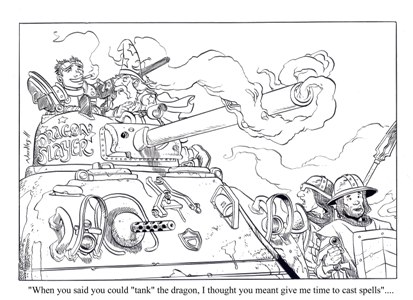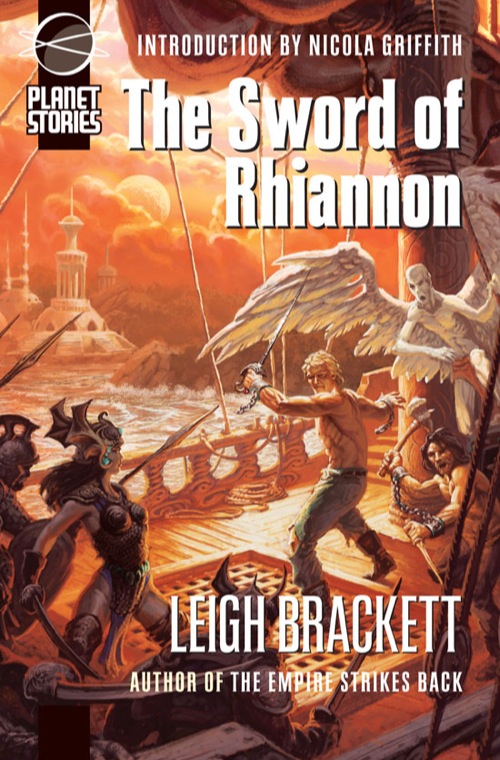 I committed a major heresy, in public and on record, against the sword-and-sorcery community when I stated on the recording for a podcast that, in the realm of “sword-and-sorcery” fiction, I prefer Leigh Brackett over Robert E. Howard. Although at least one participant on the podcast seconded my opinion, I do understand why most sword-and-sorcery readers cannot go with me on this. Howard is, after all, the Enthroned God of the genre. And, strictly speaking, Brackett did not write fantasy or historicals. Her specialty was action-oriented science fiction with heavy fantasy influences, the sub-genre of science-fantasy known as “planetary romance.” (Sometimes called “sword-and-planet.” I hate that term.)
I committed a major heresy, in public and on record, against the sword-and-sorcery community when I stated on the recording for a podcast that, in the realm of “sword-and-sorcery” fiction, I prefer Leigh Brackett over Robert E. Howard. Although at least one participant on the podcast seconded my opinion, I do understand why most sword-and-sorcery readers cannot go with me on this. Howard is, after all, the Enthroned God of the genre. And, strictly speaking, Brackett did not write fantasy or historicals. Her specialty was action-oriented science fiction with heavy fantasy influences, the sub-genre of science-fantasy known as “planetary romance.” (Sometimes called “sword-and-planet.” I hate that term.)
I love Robert E. Howard’s work; it’s foundational for me. But, it’s “not that I love Howard less, but that I love Brackett more.” To that extent, I want to promote the sheer awesomeness that is Leigh Brackett whenever I can. And in her 1949 novel The Sword of Rhiannon (buy it here!) she reached what I believe is her apex: a planetary romance set across an ancient version of Mars, crammed with sword-swinging action, pirate-style swashbuckling, alien super-science, a hero as flinty as granite, an alluring and surprising femme fatale warrior, and an overarching theme of redemption, loss, and futility that ends up pushing what sounds like a standard adventure into a work of intricacy and overwhelming emotion.
Leigh Brackett (1915–1978), a long time resident of the same neighborhoods in Los Angeles where I grew up and still live, was a student of Howard’s work and an immense admirer. However, she didn’t copy him when she started her own career, but infused his passionate style with her own passions. Brackett shows the influence of other predecessors — Clark Asthon Smith, A. Merritt, C. L. Moore, Henry Kuttner, Otis Adelbert Kline, Edgar Rice Burroughs — but her mixture is blended so perfectly that all of it feels fresh and driven. I just finished another re-reading of The Sword of Rhiannon, and I am as thunderstruck as ever with how damn great Leigh Brackett was at what she did. Even more, I am awed at how modern her tale feels, even though the outer hull shows it as an old-fashioned pulp romance. Not that there’s anything wrong with the old pulp style; I still read Edgar Rice Burroughs avidly. But Brackett to this day stands in a class of her own.
…
Read More Read More
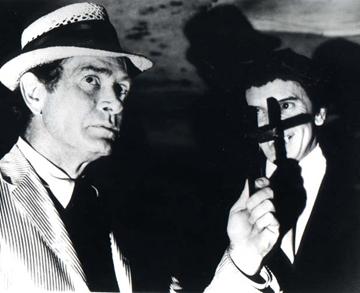 You remember him, I know you do.
You remember him, I know you do.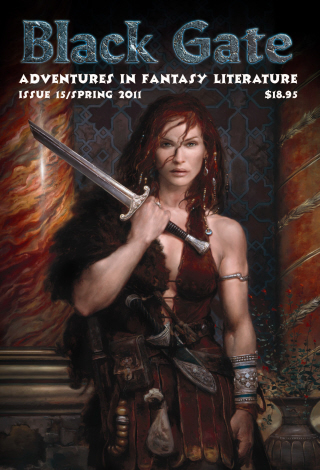
 As one of the new recruits here at Black Gate, I’ll be bringing you a series of what I hope you’ll find to be interesting posts soon enough. But first I wanted to say howdy and tell you a little bit about myself.
As one of the new recruits here at Black Gate, I’ll be bringing you a series of what I hope you’ll find to be interesting posts soon enough. But first I wanted to say howdy and tell you a little bit about myself.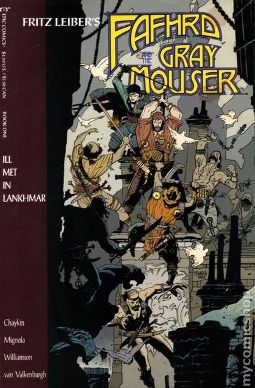
 I committed a major heresy, in public and on record, against the sword-and-sorcery community when I stated on the recording for a podcast that, in the realm of “sword-and-sorcery” fiction, I prefer Leigh Brackett over Robert E. Howard. Although at least one participant on the podcast seconded my opinion, I do understand why most sword-and-sorcery readers cannot go with me on this. Howard is, after all, the Enthroned God of the genre. And, strictly speaking, Brackett did not write fantasy or historicals. Her specialty was action-oriented science fiction with heavy fantasy influences, the sub-genre of science-fantasy known as “planetary romance.” (Sometimes called “sword-and-planet.” I hate that term.)
I committed a major heresy, in public and on record, against the sword-and-sorcery community when I stated on the recording for a podcast that, in the realm of “sword-and-sorcery” fiction, I prefer Leigh Brackett over Robert E. Howard. Although at least one participant on the podcast seconded my opinion, I do understand why most sword-and-sorcery readers cannot go with me on this. Howard is, after all, the Enthroned God of the genre. And, strictly speaking, Brackett did not write fantasy or historicals. Her specialty was action-oriented science fiction with heavy fantasy influences, the sub-genre of science-fantasy known as “planetary romance.” (Sometimes called “sword-and-planet.” I hate that term.)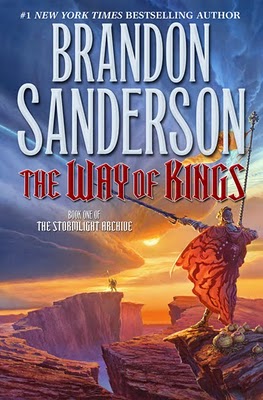
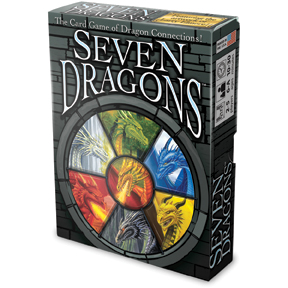 Two of my favorite card games come from Looney Labs:
Two of my favorite card games come from Looney Labs: 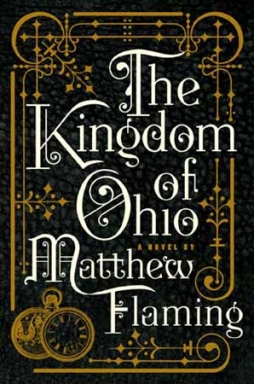 How to describe Matthew Flaming’s book The Kingdom of Ohio?
How to describe Matthew Flaming’s book The Kingdom of Ohio? 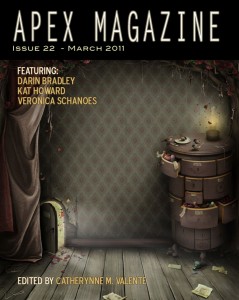 Apex Magazine is a monthly on-line publication of science fiction, fantasy and horror edited by Catherynne M. Valente.
Apex Magazine is a monthly on-line publication of science fiction, fantasy and horror edited by Catherynne M. Valente.